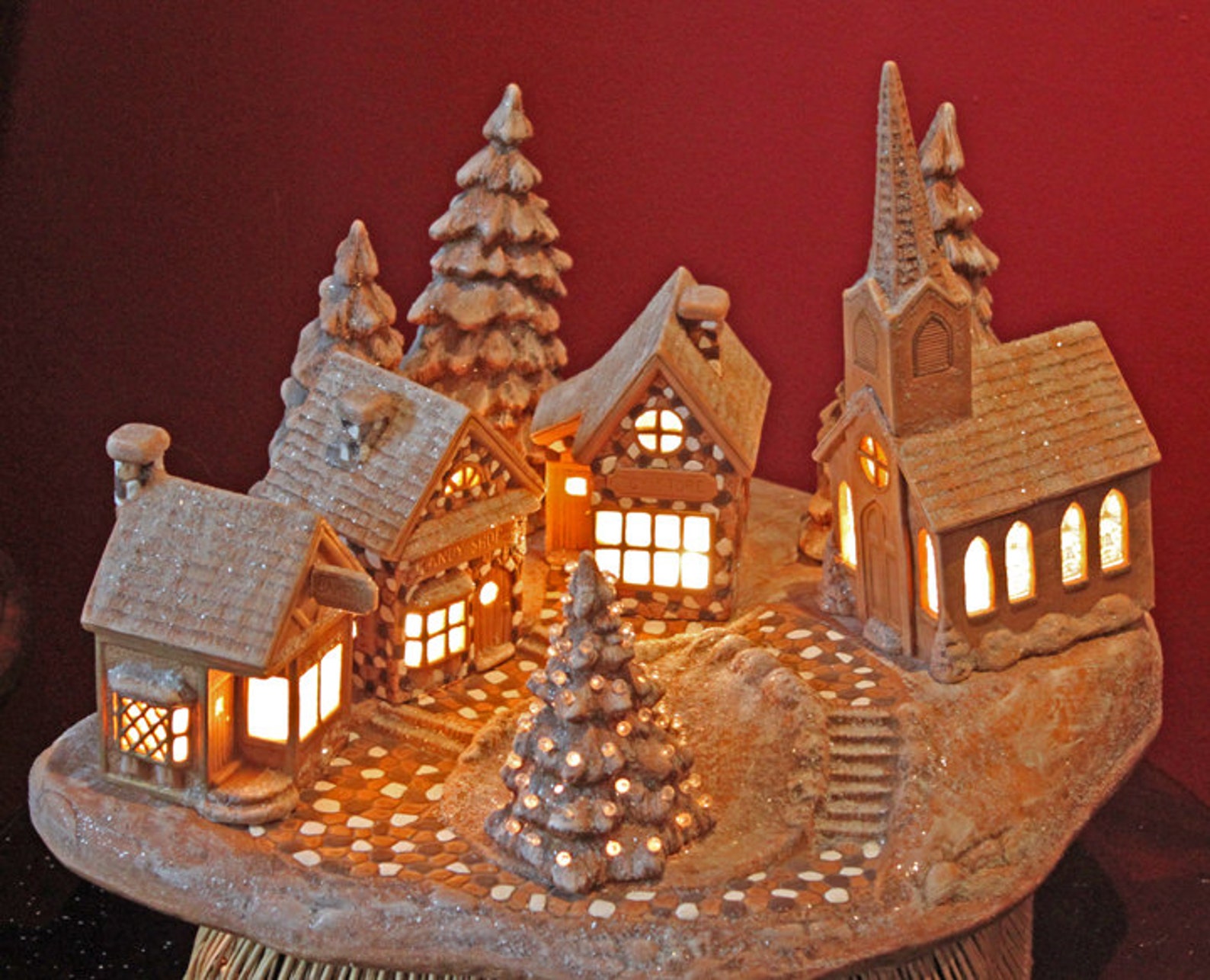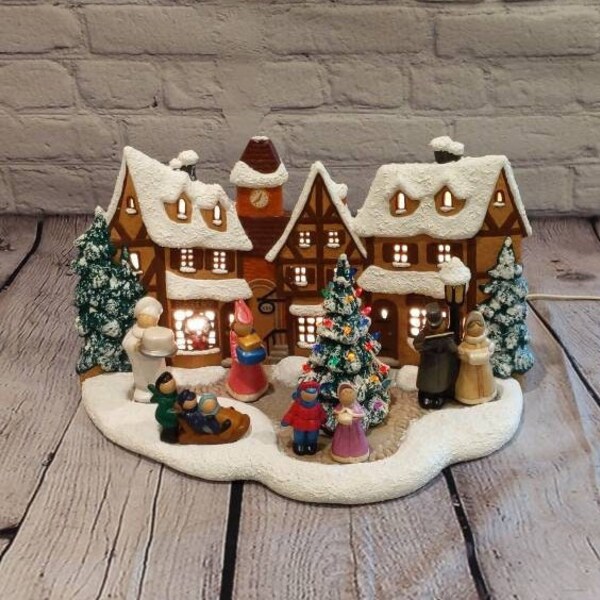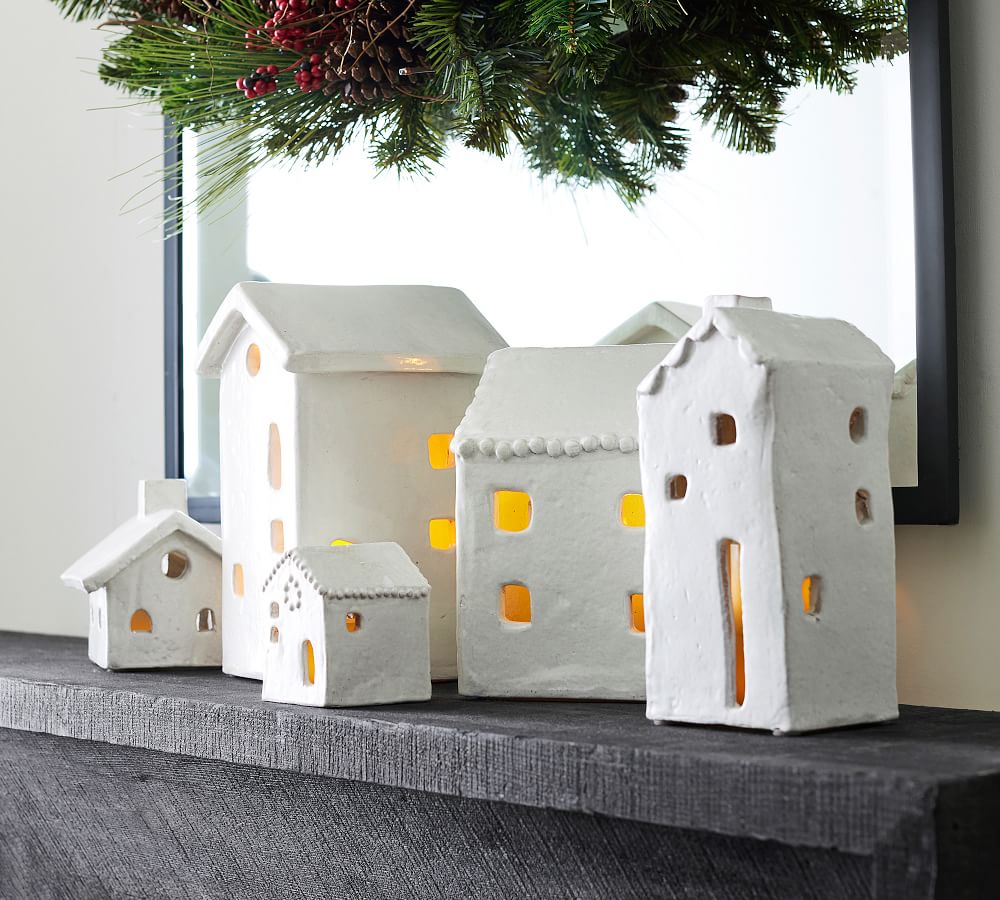Ceramic Christmas Village: A Timeless Tradition for the Holidays
Related Articles: Ceramic Christmas Village: A Timeless Tradition for the Holidays
- Candy Land Christmas Door Decorations 2024: A Sweet And Festive Way To Welcome The Holidays
- Celestial Verses To Adorn Your Christmas Greetings In 2024
- Experience The Enchantment Of The Blue Hat North Pole Junction Christmas Train 2024
- Catch A Christmas Star 2024: A Celestial Spectacle Unfolding
- Unveiling The Enchanting World Of Brandy: A Christmas Party For Two In 2024
Introduction
With great pleasure, we will explore the intriguing topic related to Ceramic Christmas Village: A Timeless Tradition for the Holidays. Let’s weave interesting information and offer fresh perspectives to the readers.
Table of Content
Video about Ceramic Christmas Village: A Timeless Tradition for the Holidays
Ceramic Christmas Village: A Timeless Tradition for the Holidays

The ceramic Christmas village is a cherished holiday tradition that has been passed down through generations. These miniature villages, often depicting charming European towns or quaint American neighborhoods, bring a touch of festive cheer and nostalgia to homes during the Christmas season.
Origins of the Ceramic Christmas Village
The origins of the ceramic Christmas village can be traced back to the early 19th century in Germany. During this time, artisans began crafting small porcelain houses and figurines as decorations for the Christmas tree. These early villages were typically simple in design, featuring basic shapes and limited detailing.
As the popularity of Christmas villages grew, they became more elaborate and sophisticated. In the 1950s, American companies such as Department 56 and Lemax began mass-producing ceramic Christmas villages, making them accessible to a wider audience.
The Art of Collecting and Displaying
Collecting ceramic Christmas villages has become a popular hobby for many enthusiasts. Villages can range in size from a few pieces to hundreds of buildings and figurines. Collectors often choose a specific theme or style for their villages, such as Victorian, Colonial, or European.
Displaying a ceramic Christmas village is an art form in itself. Villages can be set up on tables, mantels, or even under Christmas trees. Some collectors create elaborate landscapes with snow-covered streets, twinkling lights, and moving figurines.
The Magic of Ceramic Christmas Villages
Ceramic Christmas villages have an enduring appeal that transcends time. They evoke a sense of nostalgia and childhood wonder, reminding us of the simpler times of Christmas past.
The intricate details and charming designs of these villages bring a touch of magic to the holiday season. The miniature houses, shops, churches, and figurines create a world within a world, inviting us to step into a festive and enchanting realm.
Modern Trends and Innovations
In recent years, ceramic Christmas villages have undergone a number of innovations. Some villages now feature interactive elements, such as lights that turn on and off or figurines that move. Others incorporate advanced technology, such as Bluetooth connectivity to control lights and music remotely.
Contemporary ceramic Christmas villages also reflect modern trends in home décor. Villages with sleek, modern designs and neutral color palettes have become popular, catering to those who prefer a more minimalist aesthetic.
Conclusion
The ceramic Christmas village is a timeless tradition that continues to bring joy and festive cheer to homes around the world. From their humble origins in Germany to their modern incarnations, these miniature villages have captured the hearts of generations.
Whether you are a seasoned collector or a first-time enthusiast, the ceramic Christmas village offers a unique and enchanting way to celebrate the holiday season. Its intricate details, charming designs, and nostalgic appeal will create lasting memories for years to come.








Closure
Thus, we hope this article has provided valuable insights into Ceramic Christmas Village: A Timeless Tradition for the Holidays. We hope you find this article informative and beneficial. See you in our next article!